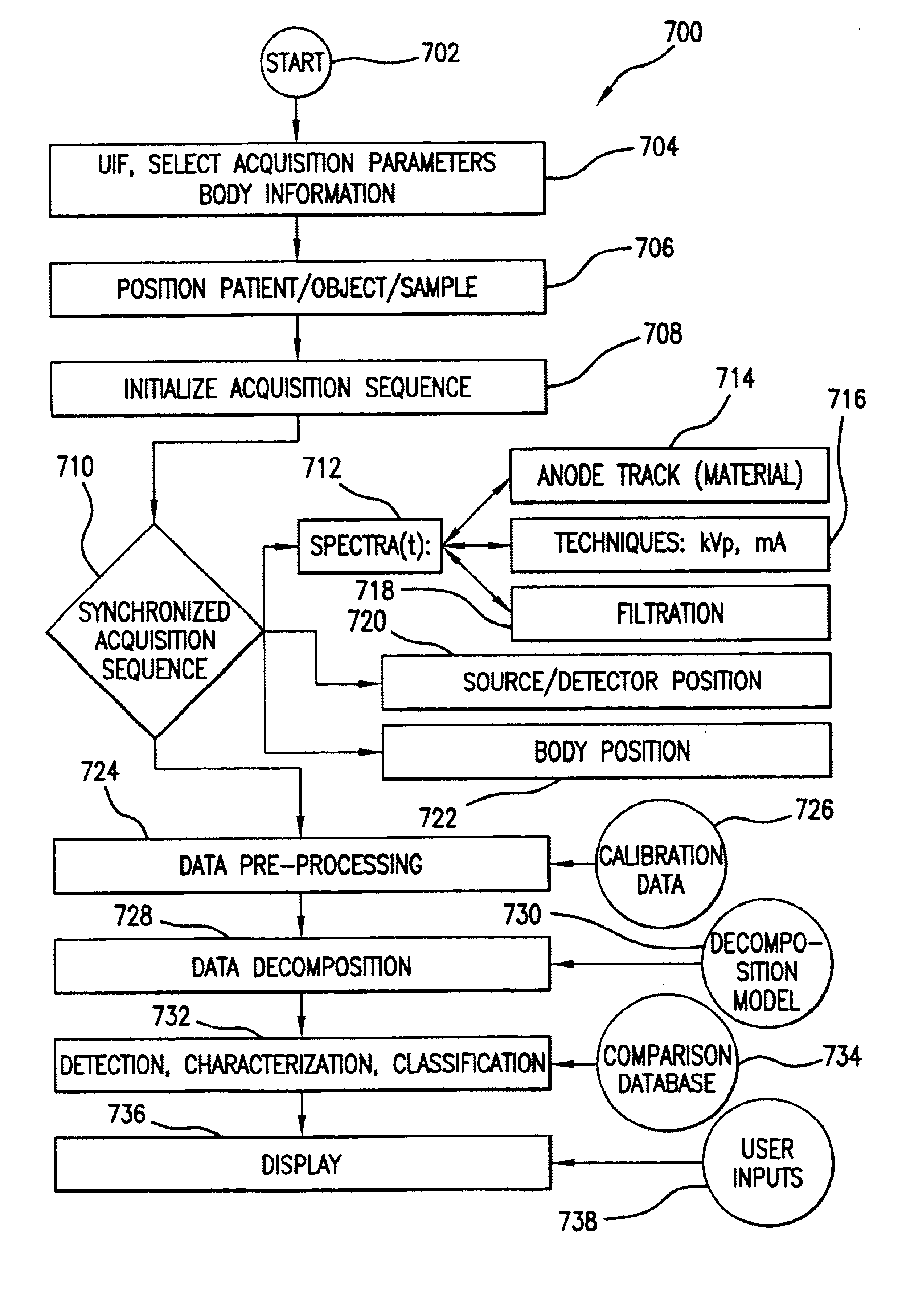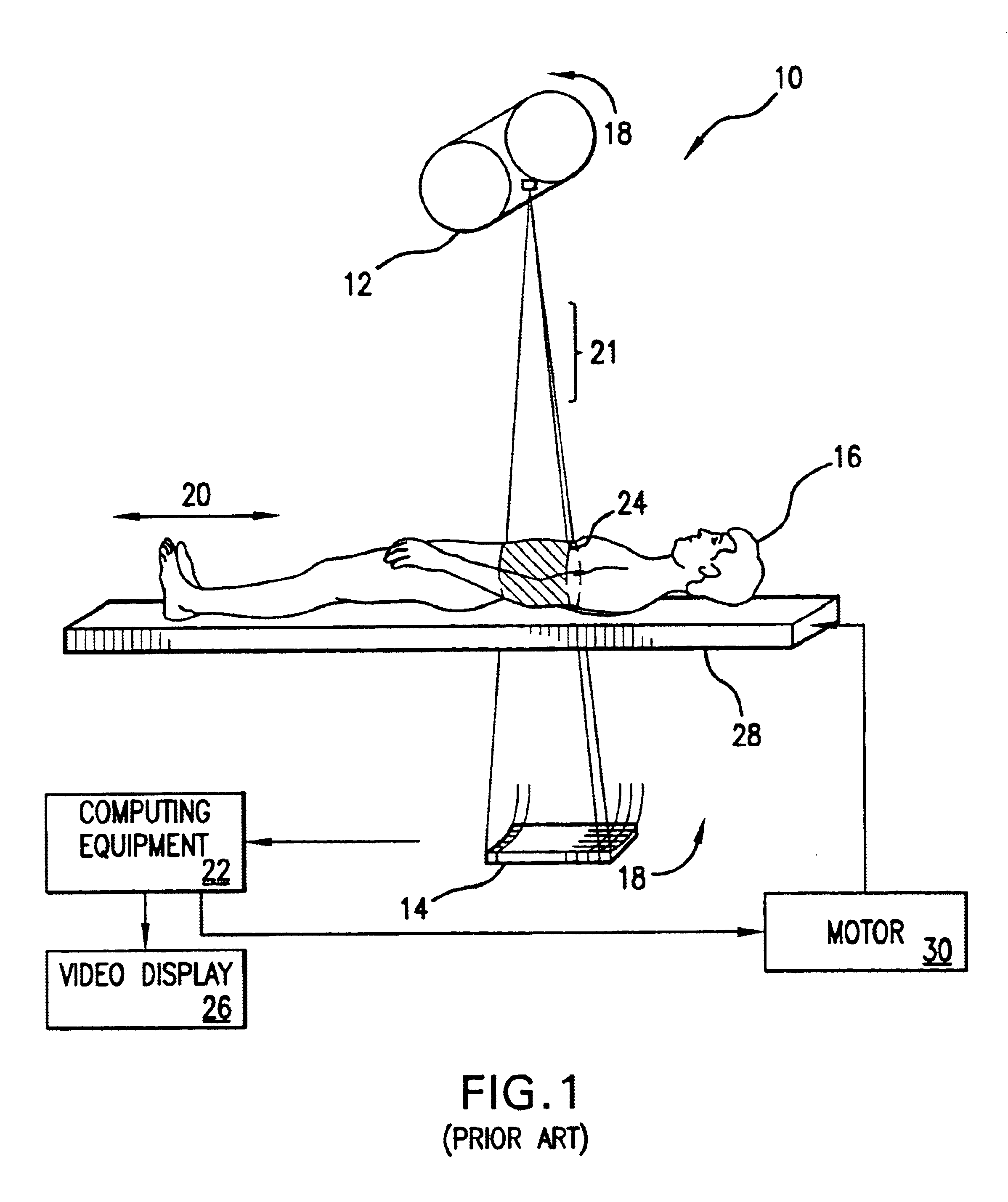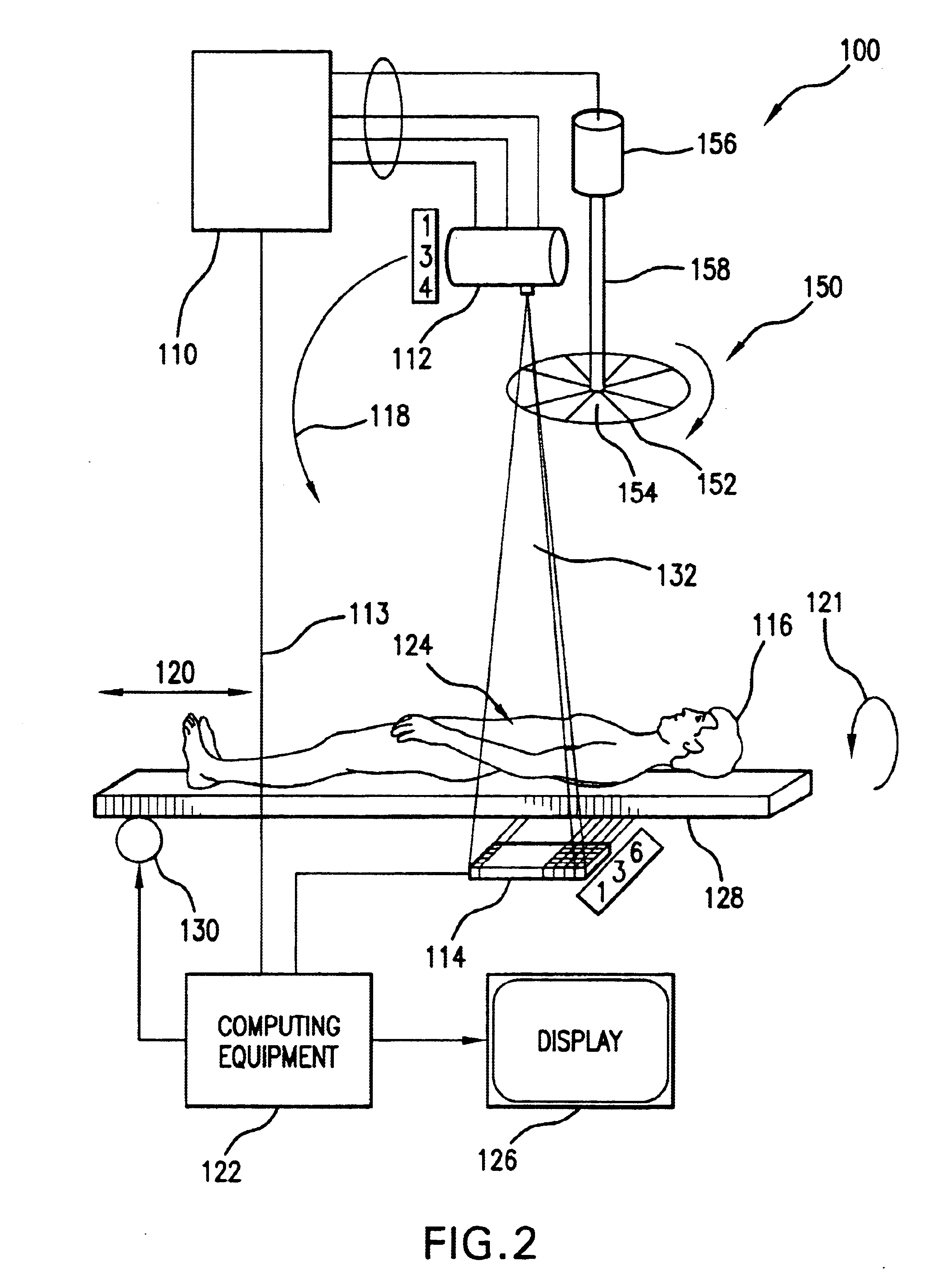Dynamic multi-spectral CT imaging
a multi-spectral xray and imaging technology, applied in the direction of instruments, patient positioning for diagnostics, applications, etc., can solve the problems of measurement lack of quantitative accuracy, doubts about the likelihood of significant changes in patient outcomes, etc., to improve the conspicuity and patient outcomes of lesion, improve measurement and diagnostic results, and improve the effect of cad algorithms
- Summary
- Abstract
- Description
- Claims
- Application Information
AI Technical Summary
Benefits of technology
Problems solved by technology
Method used
Image
Examples
example 1
Modeling of Beam Spectra Generation and Detection
[0194]It is possible to mathematically model X-ray spectra, filtration, phantom attenuation, and detector absorption, for example, including the spectral attenuation equation, as shown by equation (1.3). As will be seen below, this model confirms a physical basis for the feasibility of full-frame sampling and narrow-beam X-ray scanning, for example in lung imaging as well as for other applications described above. The output of this model may be used to provide test input sets for use in further modeling. In particular, key aspects of signal, noise, dose, and spectra separation have been modeled and confirmed by empirical studies.
[0195]In practical X-ray beam imaging, four parameters are available to shape the X-ray spectrum. These are the X-ray target material, the amount and type of filtration used, the kVp applied, and the tube current that is selected. Calculations to provide an X-ray spectra may, for example, be performed using t...
example 2
Single-scan Dual-energy Imaging
[0204]Initial multi-spectral investigations were modeled with a dual-energy scan configuration, using typical spectra as obtained at 120-kVp and 2-mm Al and 3-mm Cu filtration; and 60-kVp and 2-mm Al filtration, respectively. With a beam width of 10-mm at the detector, and a pixel size of 127-μm, the primary beam illuminated 79 pixels and the effective exposure time was 315-ms for any point in the object. Tube currents of 12 and 6-mAs at 120 and 60-kVp respectively led to a (constant) tube current of 60-mA, and 52 and 26 samples at 120 and 60 kVp respectively. Tables 4 and 5 below list various model input parameters and output relating to the phantom, dual-energy techniques, filtration, and detector parameters.
[0205]
TABLE 4Phantom, techniques, and filtration parameters fordual-energy single scan acquisitionBeam widthpixel sizeReadoutExposure Timemmmicrons# of pixelsmsmsTube mAScan LengthScan time43013.510127794315.057kVp:12060mAs:126FilterAl-filt:22Fil...
example 3
Single-scan Imaging with Six Spectra
[0208]A simulated a six-spectra acquisition is shown below for illustration of how this methodology may be applied in a more general sense. Tables 6 and 7 list the corresponding spectral characteristics. In this experiment, two additional low-energy spectra were designed to have mean energies just below and just above the K-edge of Iodine.
[0209]
TABLE 6Techniques for a six-spectra AAPM chest phantom simulationBeam widthpixel sizeReadoutExposureTube currentScan lengthScan timemmmicrons# of pixelsmsmsmAmmseconds12127946566.912043020.3kVp:140120100806040Total Al:Al555455FilterAl-filt:222122FilterCu554100FilterCe0.40FilterHafnium0.2Filteriodine0.1PhantomAcrylic100100100100100100PhantomWater000000PhantomAl333333
[0210]
TABLE 7X-ray characteristics of a six-spectra AAPM-phantom simulationAir exposuresSettings:kVp:140120100806040140-120mAs:571561520(or sum: Σ=)SID-scaled mAs2.63.67.73.17.710.2Fluence / mm*2218134124946134016109091171207318211Kerma (scaled to ...
PUM
 Login to View More
Login to View More Abstract
Description
Claims
Application Information
 Login to View More
Login to View More - R&D
- Intellectual Property
- Life Sciences
- Materials
- Tech Scout
- Unparalleled Data Quality
- Higher Quality Content
- 60% Fewer Hallucinations
Browse by: Latest US Patents, China's latest patents, Technical Efficacy Thesaurus, Application Domain, Technology Topic, Popular Technical Reports.
© 2025 PatSnap. All rights reserved.Legal|Privacy policy|Modern Slavery Act Transparency Statement|Sitemap|About US| Contact US: help@patsnap.com



